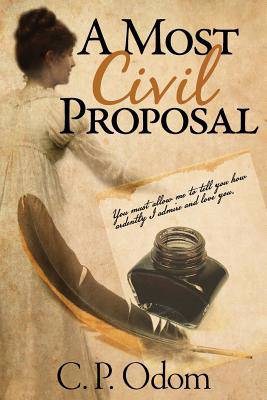
- Afhalen na 1 uur in een winkel met voorraad
- Gratis thuislevering in België vanaf € 30
- Ruim aanbod met 7 miljoen producten
- Afhalen na 1 uur in een winkel met voorraad
- Gratis thuislevering in België vanaf € 30
- Ruim aanbod met 7 miljoen producten
Zoeken
Omschrijving
"You must allow me to tell you how ardently I admire and love you." When Fitzwilliam Darcy spoke these words to Elizabeth Bennet as part of his marriage proposal, they expressed his concealed feelings completely, but their meaning was at odds with the rest of his prideful and arrogant offer of marriage. It was therefore rather easy for Elizabeth to reject his offer in much the same manner. But what if Darcy, never one at ease when trying to speak of inner sentiments, had realized beforehand how his intended proposal would sound to the young woman he hoped to make his bride? What if he had attempted a much more civil and thoughtful proposal of marriage? Could Elizabeth Bennet have coldly and angrily rejected an offer made in such a manner? A Most Civil Proposal, a variation on Jane Austen's "Pride and Prejudice", examines and explores how the lives of the two main characters and their families and friends might have turned out differently had Darcy realized his error beforehand and thus avoided being so forcefully instructed and corrected by the love of his life.
Specificaties
Betrokkenen
- Auteur(s):
- Uitgeverij:
Inhoud
- Aantal bladzijden:
- 302
- Taal:
- Engels
Eigenschappen
- Productcode (EAN):
- 9781936009213
- Verschijningsdatum:
- 28/02/2013
- Uitvoering:
- Paperback
- Formaat:
- Trade paperback (VS)
- Afmetingen:
- 152 mm x 229 mm
- Gewicht:
- 444 g

Alleen bij Standaard Boekhandel
+ 43 punten op je klantenkaart van Standaard Boekhandel
Beoordelingen
We publiceren alleen reviews die voldoen aan de voorwaarden voor reviews. Bekijk onze voorwaarden voor reviews.







